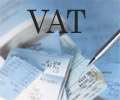
Dec 31: The traders and transporters ofUttar Pradesh are not likely to welcome the New Year’s celebration as the state government has decided to implement the so far tolerated Value Added Tax rule on the goods, products, business and trading from January 01, 2008. The government officially announced it on Thursday December 27, 2007 after getting president's formal consent to the related bill on December 26, 2007.
The regime of VAT would strictly impose from January 01, 2008 as per government official reports said. The Empowered Committee had recommended it to impose it in all the states by April 2005 to meet the implementation of Goods and Service Tax (GST) on time that is planned to impose on the entire state by 2010.
The Central government is planning to impose GST tax system in entire country by 2010 for developing India as a single national market on the patterns of European Union to reform a nationwide uniform tax structure on multitude goods and services. For imposing this properly, the central government has already set up an empowered committee comprising Indian Finance Ministers of states to make a blueprint of GST, central official reports confirmed.
As per GST rule, the states will get the authority to levy and collect the tax on a wide range of services and product including amusement parks, private health and education services while the centre government will collect GST on all India services like banking, insurance and telecom sectors.
To achieve this target Central Government has recommended all the states to implement VAT rule from April 2005. Most of the states except Tamil Nadu and Uttar Pradesh had imposed this tax system within time limit but both these states had denied imposing it. Later the DMK government in Tamil Nadu had imposed this rule in 2007 but SP Government led by Mulayam Singh Yadav in the UP had firm to not to impose this rule in the state but now new government in state has decided to implement this rule after getting Centre’s directives.
The state government will not get any loss reimbursement for the first year’s loss as other states got because of making delay in implementing this rule as per Empowered Committee’s recommendation. According to its recommendation, “All states that switch over to the VAT regime by 2005 are entitle to total reimbursement of initial losses by the central government in the first year of implementation, 75 percent in the second year and 50 percent in the third year.” Uttar Pradesh may loss nearby Rs.3,000 crores on the initial stage due to delay to implement this rule, as per state’s top finance department reported.
A value-added tax (VAT) is a fee that is levied at each stage of the process of producing goods and bringing them to market against businesses by a government at various points in the production of goods or services—usually any time a product is resold or value is added to it. France had adopted this system first time in the globe in 1954 and till now it is very famous tax system in more than 40 countries in the globe including Canada and European Nations.
Now the manufacturers and the traders can be able to take benefit of Input Tax Credit that was earlier absent in the non-VAT regime. Uttar Pradesh is the last state to implement VAT in the state.
The Uttar Pradesh Vyapar Mandal (Traders Association) and Transport operators have decided to call an undecided state-wide protest from December 31 against government new directives. According to Traders, “The new tax regime will sternly hit the leather, food grain and garment industries in the state as the rate of taxes in other adjoining states is much less than what has been proposed here.”
As per transporters, they have decided to chakka Jaam from January 01, 2008.
|
|


Comments:
sanjay
January 12, 2008 at 12:00 AM
please tell me the articles on which vat imposed in uttar pradesh